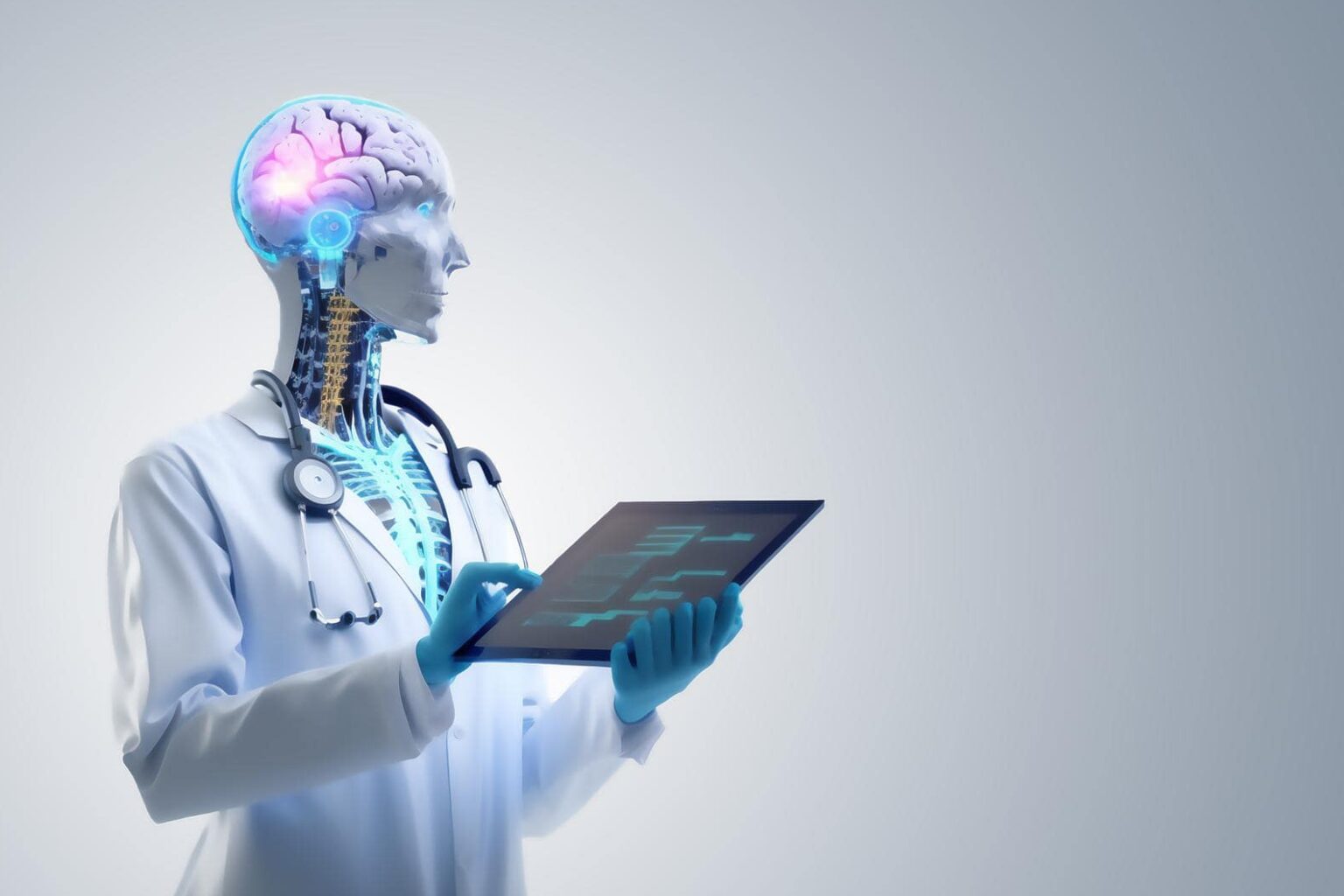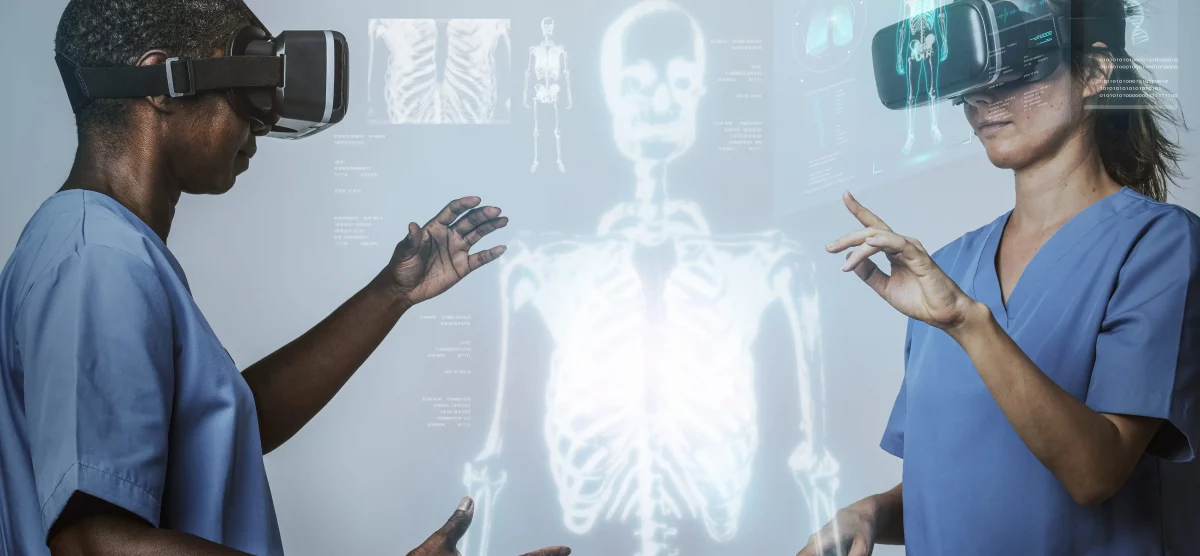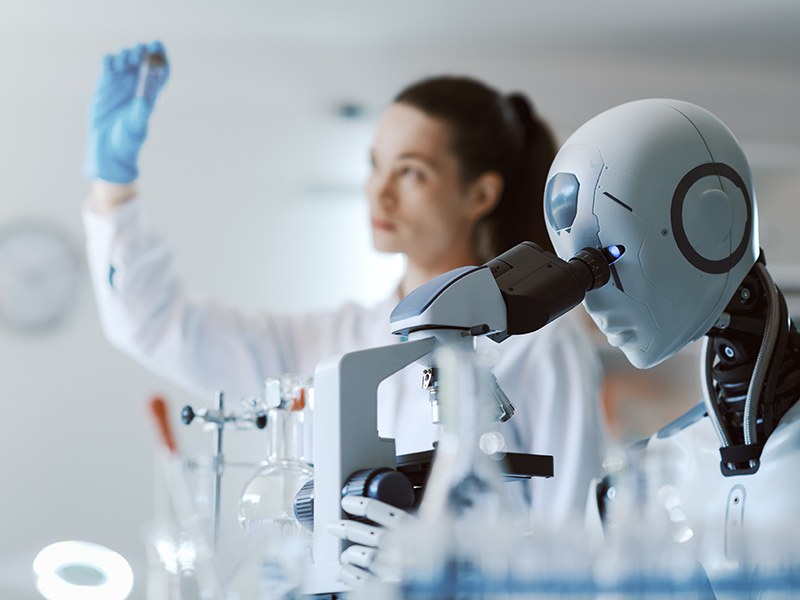AI in Healthcare Transforming Patient Care. Artificial intelligence remains a front-runner of transformative technologies in that fast scene of changing healthcare.
Its applications—diagnoses and treatment plans—have changed patient care in ways that no one could have imagined just a decade ago.
AI in Healthcare: Transforming Patient Care
The following article will scrutinize how deeply AI is impacting healthcare by looking at its applications at present and potential in the future, all the while dialoguing with common questions on its integration into practice.
INTRODUCTION
AI IN HEALTH: AN INTRODUCTION
Artificial intelligence involves the endowment of machines with human-like intelligence for thinking and learning. This could be applied by AI systems in the healthcare domain to analyze volumes of complex medical data at a speed and accuracy much beyond the traditional ways.
The potential of artificial intelligence to bring about transformative, positive change in most areas of patient care, from early disease detection to optimized treatment outcomes, is enormous.
Current Uses of AI in Medicine Medical Imaging

Diagnostic imaging applies its best promise of AI in health care. AI algorithms bring impressive accuracy in the analysis of medical images like MRIs, CT scans, and X-rays to help radiologists detect anomalies that may easily escape the human eye.
- For example, AI-driven systems can identify potential tumours or anomalies much faster than human radiologists and at better rates to follow up on diagnoses for better patient outcomes.
Personalized treatment plans
This is also advancing a movement toward treatments that are personalized where the treatment is provided to a patient with a similar genetic makeup, medical history, and lifestyle.
Machine learning algorithms can go through a lot of patients’ data and predict which treatment is going to work best with what condition, meaning avoiding a trial-and-error plan for treatments for that patient. This approach improves patient care but also reduces healthcare costs due to optimization in resource allocation.
Virtual Health Assistants

The applications of these AI-powered virtual hewheresistants are increasing to the level whereby patients are highly interactive and receive individualized advice on health matters, reminders about their medication, and even participate in virtual consultation with health providers.
They are good in the triaging of patients based on symptoms presented, giving preliminary diagnoses, and advising on the next steps for care, thereby increasing access to health services and leaving patients in a good position regarding their health management.
Administrative Efficiency
Besides the clinical applications, it is also making administrative work in healthcare centres easier. This will be realized through the fact that AI-powered systems can, by all means, automate massive administrative procedures, such as billing, and scheduling.
This also reduces the extensive paperwork so that more attention can be paid by health professionals to patients’ needs. The efficiency would reflect health organizations’ cost savings and operational effectiveness.
Future of AI in Health
DRUG DISCOVERY AND DEVELOPMENT
AI potentially has a large role in fast-tracking the process of drug discovery and development.
According to AI algorithms, huge amounts of data related to molecular structures, pathways of diseases, treatment outcomes, and others in the line can more efficiently be analyzed for identifying prospective drug candidates as compared to conventional methods.
AI in Healthcare Transforming Patient Care
This would significantly cut down the time new treatments would take to come to the market and partially fill the existing wide gaps in unmet medical needs.

Predictive Analytics in Preventive Healthcare
Therefore, possible health forecasts can be determined with AI-based predictive analytics, and at-risk populations can be identified to help a healthcare provider institute pre-emptive treatment measures before the disease process progresses.
Otherwise stated, AI algorithms could use real-time analysis of a patient’s data to identify small changes in health metrics, thus alerting healthcare providers to the likely health risks for a given individual and allowing early interventions to avert chronic diseases.
Surgical Robots and Accurate Procedures
Advancements in robotics and artificial intelligence are converting the domain of surgery to a level where complex surgeries are made possible with significantly better accuracy and precision.
“Surgical Robots and Accurate Procedures”
Robotic surgical systems integrated with AI algorithms can analyze live data from surgical instruments and reorient themselves with sub-millimetre precision while significantly reducing surgical risks and much bettering the recovery dimension for patients.
Ethical and Regulatory Considerations
- Ethics and regulations are very critical with AI continuing to change the face of health care. The most critical issues that call for extended elaborations concern the privacy of patients.
- Transparency of algorithms and the possible bias of the algorithms ihealthcarest for equal access to AI-driven health care solutions while protecting the trust of the patients in the medical system.
- Its applications—diagnoses and treatment plans—have changed patient care in ways that no one could have imagined just a decade ago following article will scrutinize how deep AI is making its impact on healthcare by looking at its applications at present and its potential in the future, all the while dialoguing with common questions on its integration into practice.
Aussie gardens could attract unwanted visitor
FAQ’s
Frequently Asked Questions on AI in Healthcare
Q: How accurate are AI-based algorithms compared to human doctors in diagnosing medical illnesses?
A: AI algorithms have demonstrated equivalent, sometimes superior performance when focusing on specific diagnostic tasks based on analyses of medical imaging and pathology slides.
Q: Would AI replace health professionals like doctors potential?
A: No, it will ensure increased potentials of health professionals to be effectively working towards higher tasks when AI takes over the patient care routine.
Q: What are some of the challenges to this integration of AI into healthcare systems?
A: These are privacy concerns related to data, regulatory compliance, algorithm transparency and accountability, and the potential for AI algorithm bias.
Q: So, how can AI help improve outcomes for Telemedicine patient populations?
A: Telemedicine and virtual health assistants powered by AI fill the gap in accessibility to healthcare. They make timely medical advice and diagnostic support available in remote communities.
Conclusion:
Artificial intelligence, in turn, can make delivering these services; more accurate diagnoses and individual modes of effective treatment; raising overall administrative efficiency; and spurring new inventions in preventive medicine and surgery.
Of course, many challenges lie ahead, but the potential that AI holds for healthcare is huge, outlining a new future of healthcare delivery that is more effective, accessible, and client-oriented.
Embedding AI into medical practice is poised to become one of the sure determinants of the future face of healthcare across the world.





![Lucky With You 03 [ENG SUB] (Johnny Huang, Claudia Wang) | 三生有幸遇上你 Lucky With You [ENG SUB] (Johnny Huang, Claudia Wang) | 三生有幸遇上你 - Best Korean Drama Series](https://newstodaywire.com/wp-content/uploads/2022/01/lucky-with-you-218x150.jpg)






![Katie Sigmond Wiki Tik-Tok Star Age, Family, Biography, Ethnicity, Boyfriend, Parents, Latest Images Katie Sigmond Wiki [Tik-Tok Star] Age, Family, Biography, Ethnicity, Boyfriend, Parents, Latest Images](https://newstodaywire.com/wp-content/uploads/2022/01/katie-sigmond-218x150.jpg)













